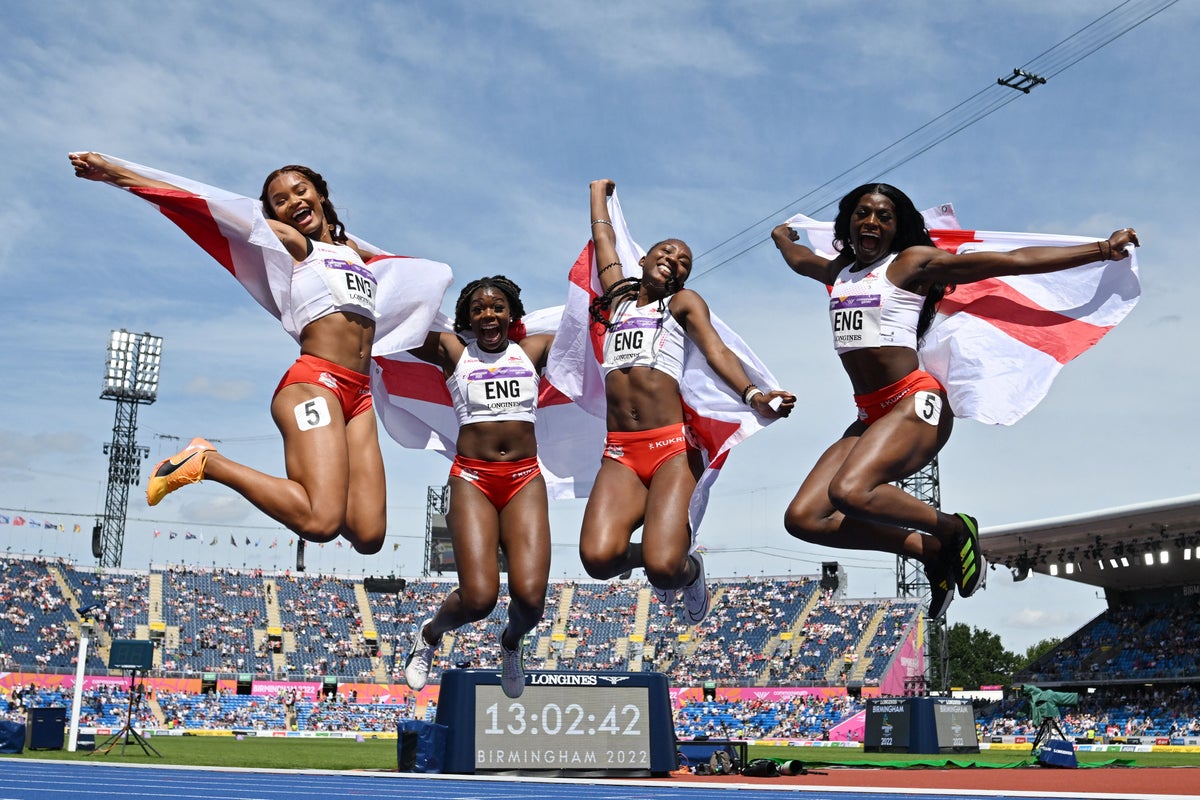
On the field of play, there is no question that Birmingham 2022 has been a success but for Sport England chief executive Tim Hollingsworth, it is the long-term legacy that will define these Commonwealth Games.
Organised at relatively short notice after initial host Durban was forced to pull out, Birmingham has lived up to its reputation as one of Britain’s most diverse cities.
From the construction of a new swimming pool at the Sandwell Aquatics Centre to the renovation of Alexander Stadium, the physical impact of these Games will be tangible.
But just as crucially for Hollingsworth will be ensuring that when the Commonwealth movement turns its gaze towards Australia in 2026, that sport in Birmingham and the West Midlands is not forgotten.
That is why Sport England has invested more than £35m of funding from the National Lottery and government in a wide-ranging programme aimed at creating inclusive and affordable local opportunities for people to get active, as well as collaborating with local organisations and communities to improve access to sport.
Hollingsworth explained: “One of the most important things is that the local communities around Birmingham and the West Midlands feel the benefit of having had these Games. We should always really see multi-sport Games like the Commonwealths as jumping off moments for legacy, not moments where things culminate.
“The support of National Lottery players and UK government has given us the opportunity to proudly invest in the games, create opportunities and create a meaningful, lasting legacy. We can see that in some of the programmes we have going on that are connecting local communities to activities across the West Midlands. And it’s also some of the plans for the facilities from these Games when they go into legacy mode.
“The Sandwell Aquatics Centre is a brilliant example. Sandwell is a relatively less affluent area of the city; it has had nothing like this before. If we had just built and said, ‘here is a swimming pool’, I don’t think we would have changed behaviour really.
“But I don’t think we have done that, we’ve built it with the community in mind, we have consulted widely and more importantly, local people have indicated what they need. So, for example, there is a chance for local Asian women groups to come and use the pool privately because of the way the legacy entrances have been designed.
“Equally we have worked with the city and England Basketball to build another 20 3x3 basketball courts in the city because of the popularity of the tournament that was held here that has demonstrated what an easy, accessible sport it is.”
Legacy is always a popular word around any major multi-sport event, and a decade after London 2012, Hollingsworth is aware that it is not as simple as just relying on sporting excellence and improved facilities.
He added: “One of the lessons we have learned from London 2012 is that you need to be creating opportunities for people to feel that it can be for them and for them to make it part of their lives.
“We need to meet them where they are at, to use a phrase which sums it up quite well. What we have historically done with sport including off the back of major Games is think that because there has been some visibly excellent table tennis or badminton, just to pick two sports at random, that will mean that more people will want to play table tennis or badminton.
“I think we’ve disproved that theory, the ‘Build it and they will come’ theory. In fact, what we must do is make sure that the Games catalyses people’s interest and then offer up opportunities.
“The option there is to work with the right people in the community to ensure that they are aware of what’s available rather than assuming that people are going to gravitate towards it naturally themselves.”
National Lottery players raise more than £30m week for good causes including vital funding into sport – from grassroots to elite. Find out how your numbers make amazing happen at lotterygoodcauses.org.uk and get involved by using the hashtag: #TNLAthletes.







